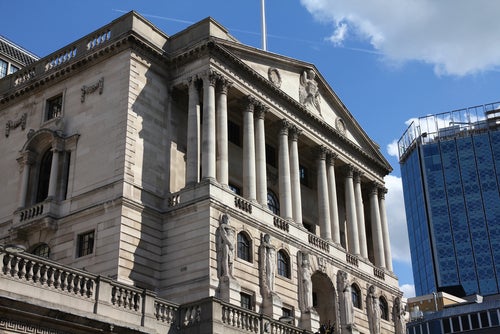
The governor of the Bank of England has urged bank chief executives to speed up lending to cash-strapped SMEs as a result of the Covid-19 outbreak.
Andrew Bailey was speaking to journalists on a conference call on 17 April when he warned that delays to cash funding could “destroy people’s livelihoods” and warned there could be “scarring” to the economy that could leave lasting damage.
Bailey said: “From an operational point of view, I’ve talked to banks a number of times. I’ve made it very clear to them. They’re under no illusions that they’ve got to get on with this.”
Bailey recognised that caution needed to be taken when deciding to loan money to a company that may not be able to pay its debts once the Covid-19 lockdown is lifted, but he urged banks to “sort out” the operational delays in processing loans to SMEs.
In mid-March chancellor of the exchequer, Rishi Sunak, unveiled the Coronavirus Business Interruption Loan Scheme (CBILS) scheme targeted at SMEs with an annual turnover below £45m.
The British Business Bank (BBB) run scheme provides access to loans, overdrafts, invoice finance and asset finance of up to £5m for up to six years.
How well do you really know your competitors?
Access the most comprehensive Company Profiles on the market, powered by GlobalData. Save hours of research. Gain competitive edge.

Thank you!
Your download email will arrive shortly
Not ready to buy yet? Download a free sample
We are confident about the unique quality of our Company Profiles. However, we want you to make the most beneficial decision for your business, so we offer a free sample that you can download by submitting the below form
By GlobalDataThe government will also cover the first 12 months of interest payments and any lender-levied fees.
To date, more than £1.1bn has been handed out to SMEs, according to UK Finance, the trade body for banks and finance companies. Although this means just 21 per cent of those who’ve applied have been given funding.
A recent survey of 701 SMEs by the British Chambers of Commerce found that just 2% of respondents had achieved a payout from the CBILS scheme.
The Sunday Times reported (19 April) that of the more than 40 accredited lenders offering loans under the BBB scheme, the bulk of the lending is being done by just two banks. The government-owned NatWest had approved 5,001 loans (worth £840m), while HSBC had approved 2,026 loans (worth £278m). Other high street lenders Barclays, Lloyds and Santander had declined to provide lending statistics.
A Treasury Select Committee, which last week was taking evidence via videoconference as part of its inquiry into the economic impact of the coronavirus emergency on businesses and individuals, heard about an ‘eligibility gap’ for the government’s various business bailout schemes.
The committee also heard that the biggest delays were being experienced by companies applying for loans of less than £25,000.
The governor suggested that SMEs might need grants rather than loans to keep them afloat in the current circumstances, but he stressed this was a decision for the government.
Stephen Haddrill, the director-general of the Finance & Leasing Association, addressed the Treasury Select Committee on 15 April to urge MPs to consider changes to the existing support schemes and in particular to back a bigger role for non-bank lenders.
Speaking after giving evidence he said: “The non-bank lending sector relies heavily on capital markets and bank funding – two sources of finance which are currently closed.”
The comments by the Bank of England governor, also came after Christopher Woolard, the interim chief executive of the Finance Conduct Authority (FCA) published a letter (15 April) addressed to “CEOs lending to small business'” asking banks bosses to pass on the benefits of the CBILS measures to businesses without delay.
Woolard’s Dear CEO letter urged bank chief executives, their board’s and senior managers responsible for SME lending to ‘discharge their responsibilities suitably’.
“Our objective will be to ensure that there is not a repeat of the well-documented historic issues in the treatment of SMEs.”






